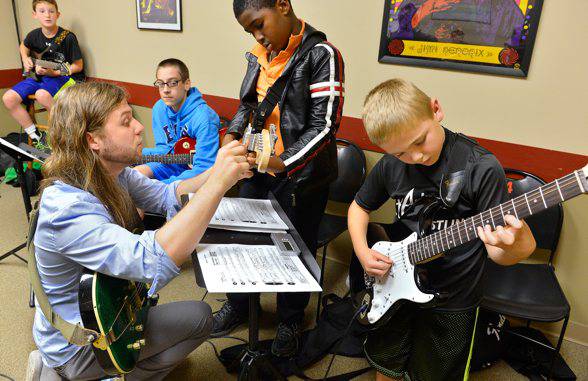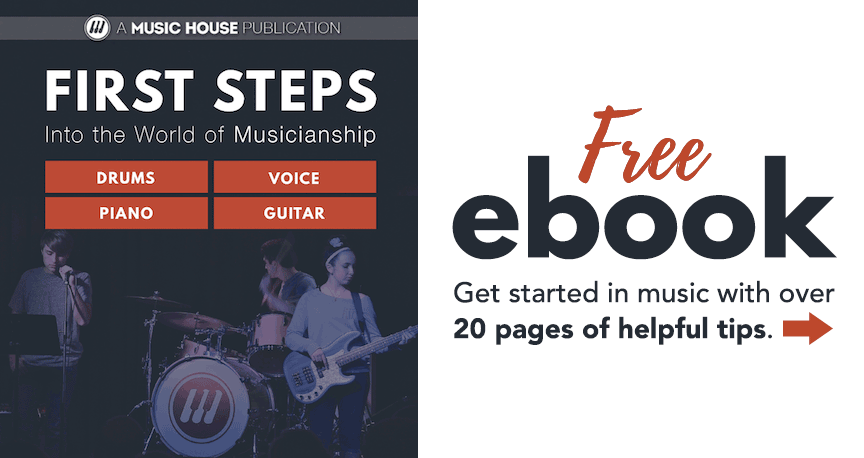Choosing the right musical instrument
Choosing the right musical instrument for your child can be a daunting task. What will it cost? Does it suit my child's taste, temprament and physical build? Will the sound of it being regularly practiced drive me insane? They're all important questions, but make no mistake: making a good choice is crucial to a child's success. Forcing a child to play an instrument rarely leads to anything good. Here are some components to consider when helping your child choose the right instrument.

Age
The first thing to consider is your child’s age. If your child is younger than 6, seek out a group introductory music program. Physical limitations alone will usually frustrate children that young. Between ages 6 & 8, go with piano. Piano is always a great “first” instrument. Since the piano keyboard is set up exactly like the musical staff, it makes learning notes and understanding music theory very intuitive and natural. PLUS, you learn how to read both the Treble Clef (high sound) and the Bass Clef (low sounds). So, if your child ever wants to try another instrument, he or she can choose just about any of them and already know the language.
At about age 9, a wider world of instruments opens up to students. There's a reason why most schools don’t offer band until that age — many instruments just aren't developmentally appropriate for the majority of kids until that point.
Body type
Another thing to consider is body type. Test whether or not your child enjoys holding the instrument. If it immediately seems overpowering and limiting, you might want to consider something else. While this seems like common sense, it is often ignored because children imagine themselves playing the instrument before they even hold one. Sometimes the desire to play a certain instrument can trump the limitations; however, it’s better to start with an instrument more compatible with your child’s body.
Is it love at first sight?
Of course, sometimes the match is simply a matter of love at first sight. Consider this experiment: What would happen if you filled a room with musical instruments and then unleashed a pack of 8 to 10 year olds? The speed at which some kids run directly for a particular instrument might surprise you. We at Music House have actually conducted this experiment many times in the form of “instrument petting zoos” at local elementary schools. Children can be strongly drawn to an instrument based on some fairly random factors.
- The instrument's weirdness: It might even just be the sheer oddity of an instrument proves beguiling. Music House oboe teacher Katrinka Sizemore had never heard or seen her instrument until she was 13. Up to that point she had played the piano. "I found the oboe weird and exotic," she recalls. "It was totally foreign to me and therefore totally interesting."
- The instrument's connection to a memorable experience: Music House vocal teacher Jen Weiman says she fell hard for opera as a very little kid. "I remember my mom brought home a VHS tape of La Boheme from the Met," Jen says. "I kept watching it every single day and was so emotional about it. I thought, 'I have to do this, I just have to be like them.'"
-
The instrument's size: You might assume that a young child would be intimidated by a large instrument, but Music House Program Manager and accomplished trombonist Rachel Gerber had the opposite experience. She says she was originally drawn to the tuba because of its size. "I wanted to play a big instrument," she says. "And tuba was the biggest one I could find." The tuba was in fact so big that it wasn't offered by her school, so she settled for trombone (which she now loves).
The luck of the draw
And then there are the random circumstances of life that can lead the way to a particular instrument — whether a kid can reach a piano's pedals or a guitar’s lowest frets, for example, or if, in the case of an aspiring brass player, he or she has braces or has adult teeth coming in.
The most important thing to remember when choosing the right instrument is this: don't try to anticipate which one would garner the best chance of a college scholarship, or which is the most popular choice among schoolmates and friends. If it's a "love match," the kid is more likely to stick with it. That's not to say that every day will be easy, of course — but if the child enjoys the sound and feeling of playing the instrument, all the better.
Music House School of Music has locations in Overland Park and Lenexa with 30 teachers sharing their knowledge with over 650 students every week.
Interested in Guitar, Piano, Voice or Drums?
We've created an ebook with over 20 pages of expert advice about what to do and think about BEFORE starting. Download and enjoy!

